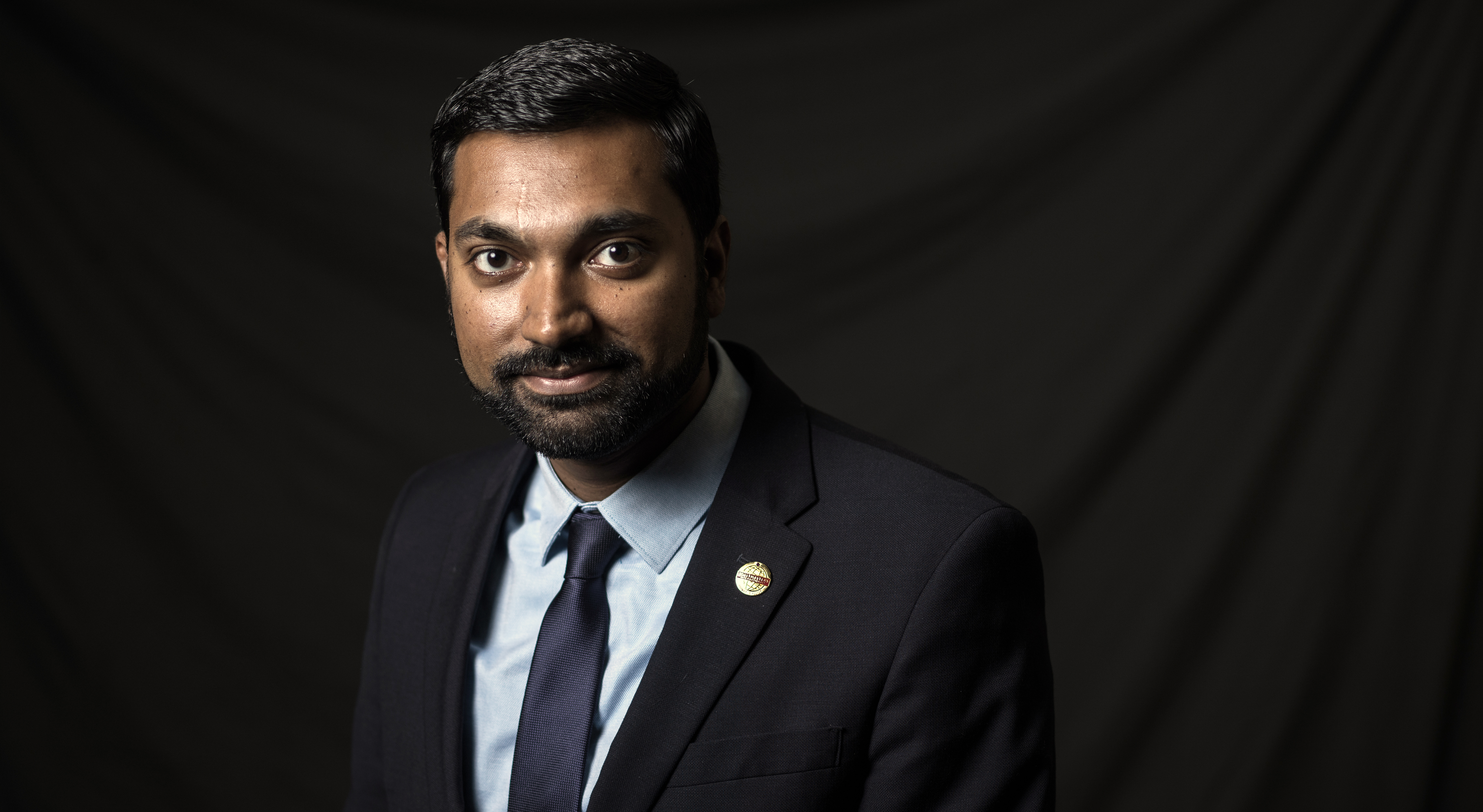
Mohamad Qayoom Works to Protect Sensitive Online Data
Content Provided by our sponsor: TEDxLSU.![]()

Information security consultant Mohamad Qayoom is using his vast experience to help people and organizations protect their information online. A graduate of the University of New Orleans, Mohamad is the principal investigator for a National Science Foundation grant aimed at helping LSU Health overhaul computer systems and create a network to improve the exchange of research and data between scientists, researchers and students. When he’s not helping people take a more active role in protecting their most sensitive personal data, Mohamad is the director of District 68 of Toastmasters International, a nonprofit organization that focuses on developing public speaking and leadership skills.
Mohamad is one of the speakers for TEDxLSU 2018, which will be on March 3. He recently sat down with us to discuss his work and life.
What is cybersecurity, and how did you become interested in it?
I pursued my bachelor’s degree in cybersecurity and information assurance and continued those studies in graduate school. The idea of cybersecurity is to figure out how to provide confidentiality, integrity and availability to data and networks. I became interested because it is a very challenging field. It’s a vital component of making sure we’re all connected securely. Whether it’s a person using a smartphone application a healthcare organization or a bank, cybersecurity is paramount.
What do most people get wrong about your profession?
Most people think that there is one person or one organization that is responsible for cybersecurity. Every single person is responsible for making sure that the cyber world is safe and secure. We collectively are going to make a difference.
What can everyday people do to improve their own security while online?
Everyday people need to first learn how to identify security issues or attacks. For example, if they receive a spam or a phishing email message in which someone is asking for their credentials, banking information or health care records, people need to recognize these kinds of attempts. Then, they need to report it to someone in their organization, a forum or their bank so that proper action is taken.
Can you tell us about your current project with LSU Health?
Research is not done in isolation, so our researchers have to work with external and internal collaborators. We recently received a National Science Foundation grant to improve the infrastructure in some of our research buildings to provide high-speed network connectivity for the researchers. The grant funds high-speed science networks so researchers can excel in their research by exchanging the data and having a secure mechanism to exchange that information.
How is your work evolving as people are living increasingly online?
We have these new problems and new challenges that are always evolving, but so are the solutions. Most of the security challenges we see today did not exist ten years ago. We have to be more cognizant about security because electronic data is available online and we have to make sure the data is secure. Therefore, it is our collective responsibility to keep our information safe and protected.
Where do you go to clear your mind?
LSU’s campus is beautiful; any time I am on campus there are people walking and running. The students are very friendly and always smiling so I really enjoy that.
What is Toastmasters and how did you get involved in it?
Toastmasters is an organization that helps its members improve communication and leadership skills. Since I joined Toastmasters five years ago, I’ve seen those skills improve. Now I’m in a leadership role where I’m helping other members become better, making a difference in society and making a difference in individual lives.
What do you do in your free time?
I wanted to get better as a leader and I realized the things you learn in improv comedy help you become a better leader, a better team player, a better listener, and more creative. So I started taking an improv course. I thought it was a 10-week class, but that was only the first level. I went back and took all five levels and I graduated with my improv diploma, so now I have a piece of paper that says that I am an improv graduate! Our team is trying to use improv comedy for a good cause, so I talked to one of the senior citizen’s homes and we are planning to go there and do a show for them — just to make these senior people happy and laugh. I find satisfaction in making a difference.
How can we balance freely sharing information with protecting people’s privacy?
As practitioners of cyber security, we have to make sure that we have enough balance between confidentiality, integrity and availability. If we lock up all of the data then no one would have access to it. Therefore on a case-by-case basis we have to see which data needs to be accessed, who are the right people to access it, and have the mechanisms in place to only allow access on an as-needed basis.
To learn more about Mohamad or about TEDxLSU 2018, follow TEDxLSU on Facebook, Twitter, and Instagram. Reserve your seat now to listen to Mohamad’s talk, as well as the talks of all of the other TEDxLSU 2018 speakers.
